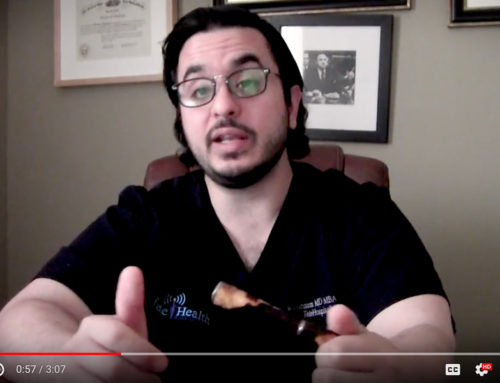Telemedicine has been used in a vast number of settings to bring physician care to patients and now, it is helping increase occupancy rates in skilled nursing facilities (SNFs). Implementing telemedicine in facilities will help increase occupancy, revenue, along with staff and patient satisfaction. Skilled nursing facilities are starting to implement the use of telemedicine during evenings and weekends, when their in-house providers are not present. Access to telemedicine physicians allows patients to be treated in place and return to hospital (RTH) are reduced. Because telemedicine hospitalists are acute care experts, they are able to work directly with SNF staff to evaluate changes in patients’ conditions and determine the acuity level of new problems. Telemedicine hospitalists have comfort with even high-risk patients, and are available to support staff. Problems that would have resulted in a readmission can instead be treated on-site.
When patients are able to receive high level telehospitalist care in a SNF that prevents a hospital transfer, new pay for performance measures such as quality of care and improved clinical outcomes will positively impact incentive payments. Avoiding a return to hospital (RTH) also means the daily reimbursement for that patient in your SNF is not lost. The average daily cost SNF care is $491.00 and the average length of stay in a hospital is 5.1 days, so when a resident is able to remain in your facility the revenue from that patient’s care remains in house. Treating patients in SNFs and not in a hospital means higher occupancy and higher revenue.
Use The Online Calculator To Calculate The Savings With TeleMedicine
Having telehospitalist support available is a key selling point when partnering with hospitals. If acute care doctors are available at your SNF during evening and weekend hours, hospitals can initiate transfer earlier from the acute care setting, increasing their likelihood to refer to your facility. The hospital discharge process starts as early as date of admission as hospitals are pressured more than ever to shorten length of stays. If a hospital partner is confident in the medical care in your facility, referrals will increase, resulting in increased occupancy rates. Similarly, SNF staff can work with more confidence if they know they have acute care backup readily available. Increased referrals and a marketing edge over your competitors will increase occupancy and revenue.
As hospital partners are more confident in a SNFs ability to provide higher levels of care, family members and patients themselves are too. This increases patient and family satisfaction and word-of-mouth recommendations. Those success stories also extend to patients’ other doctors and are the most cost-effective forms of advertising, based solely on quality of care.
Providing hospitalists via telemedicine is a win-win for everyone involved. SNFs increase occupancy and bottom line revenue, patients receive high quality on demand care when they need it the most, hospital partners are more confident and increase referrals, and in-house staff are more confident when treating their patients.




